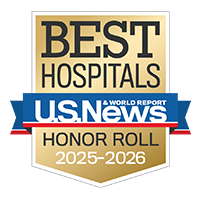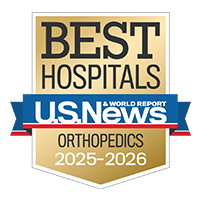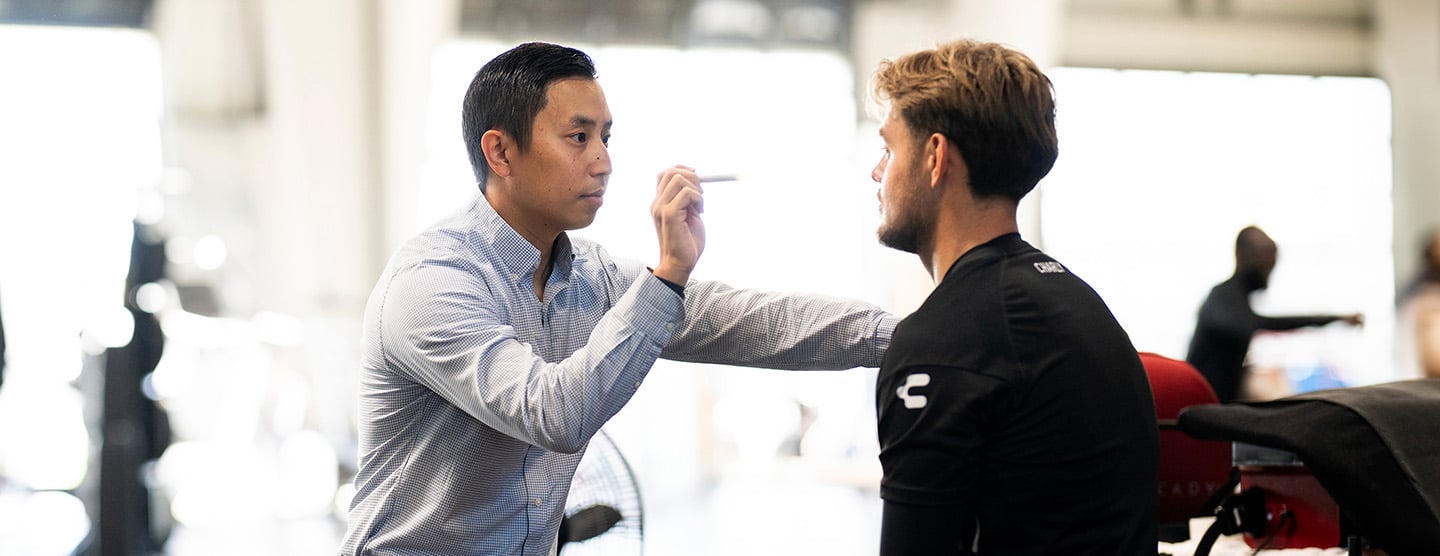Sport-related Concussion

Overview
A sports concussion is a mild brain injury caused by a bump, blow or jolt to the head or body that occurs during sports or another physical activity and leads to symptoms such as headache, dizziness or confusion. Contrary to popular perception, most people with concussion don't lose consciousness. Concussion symptoms usually appear within one to two days of the traumatic event. If you think you might have a concussion, you should promptly seek care from a doctor trained in concussion management. Don't resume participation in sports or other physical activities until you've been evaluated by a health care professional. Please visit the UCSF Sports Concussion Center for more information.
Our approach to sports concussions
The UCSF Sports Concussion Program is the region's premier center for evaluating and treating patients with an acute concussion sustained during sports or other physical activities (acute is the medical term applied to a condition that begins suddenly). Our team includes experts in primary care sports medicine, physical medicine and rehabilitation, neurology, physical therapy and athletic training. With this combined expertise, we are able to thoroughly evaluate, diagnose and treat sports concussions. Our doctors are up-to-date on the latest sports concussion research; participate in research to elevate care; and regularly teach medical students, residents and fellow doctors the essentials of sports concussion. We work with our patients and their families to create personalized treatment plans that promote full recoveries and enable safe returns to school, work and play.
The majority of people with a concussion recover quickly and fully over one to three months. There's a subset of patients who take longer to recover. In particular, patients with a history of concussion; a history of headaches; or a history of psychiatric conditions, such as depression or anxiety, may have symptoms that last longer than average.
Awards & recognition
-

Among the top hospitals in the nation
-

Best in Northern California and No. 6 in the nation for orthopedic care
Signs & symptoms
Concussion symptoms differ for each person and with each injury. Symptoms may not be noticeable right away but may develop in the hours or days following the event. If you've suffered a blow to your head, neck or body, and simply don't feel "normal" or like your usual self, we recommend contacting your primary health care provider right away to discuss the possibility of a concussion. Your provider may refer you to a specialist in evaluating and treating concussion.
Common concussion symptoms include the following:
- Headache
- Confusion
- Difficulty remembering or paying attention
- Balance problems or dizziness
- Feeling sluggish, hazy, foggy or groggy
- Feeling irritable, unusually emotional or low in spirits
- Nausea or vomiting
- Sensitivity to light or noise
- Double or blurry vision
- Slowed reaction time
- Sleep problems (sleeping more or less than usual or having trouble falling asleep)
- Loss of consciousness
Sometimes symptoms return or worsen when people do things that require concentration, such as working, studying or playing video games, or during physically demanding activities, such as playing sports, exercising or even housecleaning.
Diagnosis
Doctors usually diagnose a sports concussion by learning the patient's history (what happened) and performing a physical exam. At the UCSF Sports Concussion Program, patients meet first with an athletic trainer who interviews them about their injury and symptoms, and performs a standardized memory and balance assessment. Patients then meet with a doctor who conducts a complete neurological exam. Depending on the case, the doctor may consult other concussion specialists, including physical therapists, neurologists and neuropsychologists. Sometimes doctors also order blood tests or imaging studies of the head.
Treatments
The first step in treating sports concussion is to prevent further injury. For this reason, we recommend that anyone concerned about having a concussion immediately take a break from physical activity and seek medical advice. Young athletes should initially discuss their symptoms with parents, coaches and trainers, and then promptly seek care from their doctor or a sports concussion specialist. We recommend one to two days of complete rest, as if sick with the flu.
After this rest period, most people start to feel comfortable easing back into light activities, such as cooking, cleaning, taking short walks and doing some schoolwork (or office work) from home. As symptoms start to resolve, and with guidance from their health care providers, patients can cautiously return to school or work and become more physically active. When symptoms are fully resolved, patients can gradually return to participating in sports or other physical activities, under the direction of their medical provider.
UCSF Health medical specialists have reviewed this information. It is for educational purposes only and is not intended to replace the advice of your doctor or other health care provider. We encourage you to discuss any questions or concerns you may have with your provider.
Explore what we do
New concussion guidelines promote active recovery
We follow recently updated guidelines on diagnosing and treating sports concussions, which suggest starting light physical activity soon after the event.













